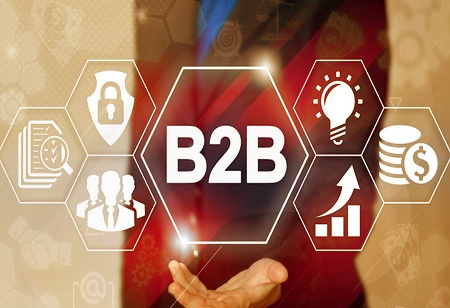This strategy has a lot of potential benefits, such as increasing brand visibility and customer loyalty. But it can also be a risky move. That's why it's important for manufacturers to understand the reasons behind the shift and how it could impact their business.
In recent years, there has been a significant shift in focus among manufacturers from B2B (business-to-business) to B2C (business-to-consumer) models. This shift can be attributed to a variety of factors, including changing customer expectations, advances in technology, new business opportunities and Increased Efficiency with Automation. In this article, we will explore four important reasons why manufacturers are shifting their focus from B2B to B2C.
Changing Customer Expectations
One of the primary reasons why manufacturers are shifting their focus to B2C is the changing expectations of consumers. In the past, businesses were primarily concerned with selling their products to other businesses. However, as consumer expectations have evolved, manufacturers have had to adapt to meet their demands.
Today's consumers are more informed and have higher expectations than ever before. They want products that are high-quality, innovative, and tailored to their specific needs. They also expect a seamless buying experience, with the ability to shop online, compare prices, and receive fast, reliable shipping.
To meet these changing expectations, manufacturers are increasingly focusing on B2C strategies. By selling directly to consumers, they can better understand their needs and preferences, and tailor their products and marketing efforts accordingly. They can also provide a more personalized shopping experience, with customized recommendations, product information, and customer support.
“Rising costs have had a significant impact on small and medium-sized businesses. Many lack access to cheap, short-term financing from banks and are now turning to BNPL to manage their cash flows. The potential market is also much larger for companies than it is for consumers—Bloomberg estimates the former to be worth $700 billion—which is a big draw for venture investors.” Says Tranch co-founders Philip Kelvin.
Advances in Technology
Another key factor driving the shift from B2B to B2C is the rapid pace of technological innovation.
In recent years, we have seen a wide range of new technologies emerge that are transforming the way manufacturers do business.
For example, advances in e-commerce platforms, mobile devices, and social media have made it easier than ever for manufacturers to reach and engage with consumers. They can now sell their products directly through online marketplaces, social media channels, and mobile apps, reaching a wider audience than ever before.
Manufacturers are also using new technologies to gather data on consumer behaviour and preferences, which they can use to inform product development and marketing efforts. For example, they can use machine learning algorithms to analyze customer data and provide personalized recommendations, or use social media analytics to track consumer sentiment and tailor their messaging accordingly.
Finally, advances in manufacturing technology are also enabling manufacturers to produce smaller batches of products more efficiently, making it easier to meet the demands of individual consumers. This allows manufacturers to offer a wider range of products, with more customization options, which can help them, stand out in a crowded marketplace.
New Business Opportunities
Manufacturers are shifting their focus to B2C because of the new business opportunities it presents. By selling directly to consumers, they can capture a larger share of the value chain, and generate higher margins than they would through traditional B2B channels.
For example, by selling their products through online marketplaces, manufacturers can avoid the costs and complexities of traditional distribution channels, such as warehousing, transportation, and inventory management. This allows them to offer their products at a lower cost to consumers, while still generating a healthy profit.
Manufacturers can also use B2C channels to test new product ideas and enter new markets. By selling directly to consumers, they can gather feedback on their products and marketing efforts, and use that information to refine their strategies and improve their offerings.
Increased Efficiency with Automation
For manufacturers in the B2B space, automation provides a number of advantages for increased efficiency. Automated processes make it possible to reduce labour costs, increase production speeds, and produce higher-quality products.
By automating production lines, manufacturers can quickly adjust operations without having to modify equipment or retrain personnel. In addition, automation can reduce the need for repeat orders due to its ability to accurately and quickly produce large volumes of identical items. This helps manufacturers save time and money in the long run by ensuring that their products meet customer specifications without having to go through multiple rounds of corrections. Finally, automated machines can handle more complex processes than manual labour and require less maintenance, helping to cut costs even further.
The shift from B2B to B2C is a natural response to changing customer expectations, advances in technology, and new business opportunities. As consumers become more informed and demanding, manufacturers are recognizing the need to sell directly to them, in order to better understand their needs and preferences, and offer a more personalized shopping experience.
Advances in technology are also making it easier for manufacturers to reach and engage with consumers, while new business opportunities are allowing them to capture a larger share of the value chain and generate higher margins. As these trends continue
